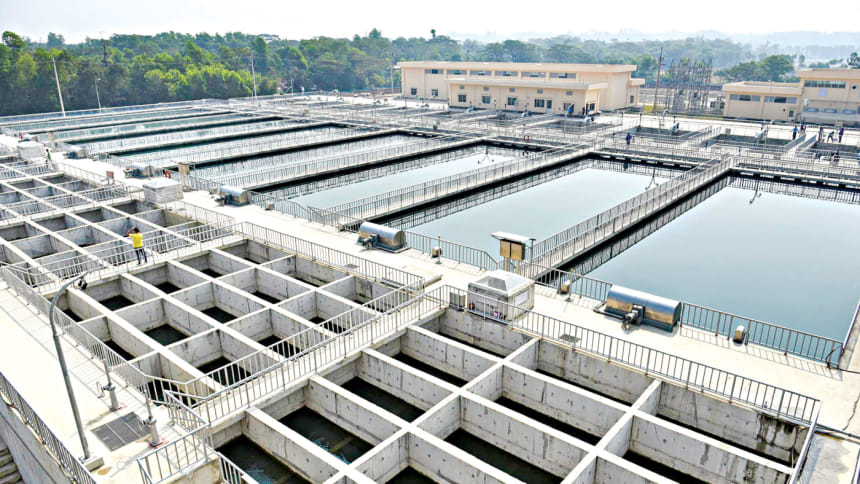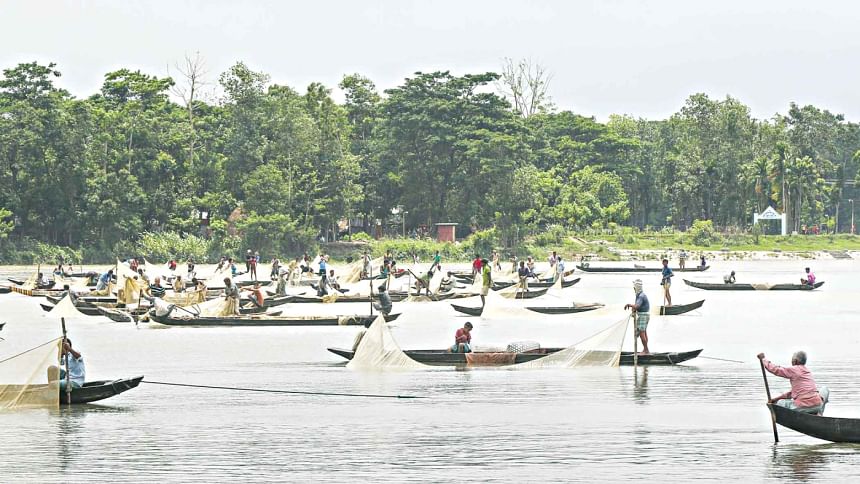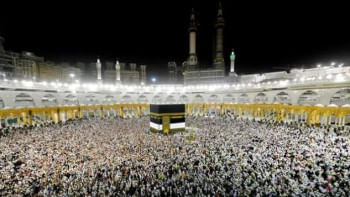Fresh threat haunts Halda

A proposed project of Chattogram Wasa set to withdraw 14 crore litres of water from the Halda river daily for an economic zone poses serious threat to the unique water body, the lone breeding ground for natural spawning of carp fish in South Asia.
The agency has already been extracting 18 crore litres of water daily from the river, also home to the endangered South Asian river dolphin, for the use of city dwellers since 2018.
It is now planning to withdraw a further 14 crore litres from Halda a day for factories in the Bangabandhu Sheikh Mujib Shilpa Nagar at Mirsarai, Chattogram, under a Tk 3,589 crore project.
Once the project is implemented, the total withdrawal will stand at around one third of total water flow in the dry season.
Halda experts and environmentalists warned of a drastic impact on the biodiversity of the river, which has been experiencing severe salinity since 2016 due to decline in its water flow.
Dozens of sluice gates, irrigation projects, and rubber dams along 98km of the river and its tributaries have contributed to reduced water flow.
A feasibility study done by the Institute of Water Modelling (IWM) drew the ire of environmentalists for being vague, ill-motivated, and intentionally evading the risk factors facing the water body.
The Daily Star obtained a copy of the feasibility study and found gaps between the final version and a summary presented in a review meeting organised by the Department of Environment on October 13 this year.
Following the criticism and a letter from the water resources ministry last month, IWM is now set to review the study.
QUESTIONS OVER FEASIBILITY STUDY
Chattogram Wasa wants to take around 336 million litres per day (MLD) water, according to the study. This will be added to the existing 225 MLD withdrawn for irrigation and other purposes.
That means a total of 561 MLD water will be extracted from Halda river every day.
Taking an average of water flow (1,875 MLD) during the dry season, particularly in February-March, total withdrawal would then be nearly one third of Halda river's water flow.
These two months are the pre-spawning period as brood fish usually lay eggs in April.
Noted Halda researcher and professor at the zoology department of Chittagong University Dr Manzoorul Kibria told The Daily Star, "The feasibility study assessed the water flow as 1,600 MLD to 2,150 MLD in the February-March period, which is crucial for Halda because spawning occurs in April.
"The total withdrawal of water will be 29.92 percent of the total water Halda holds at that time. This will reduce water flow drastically, allowing salinity far deeper into the Halda."
But this figure was presented as different in the review meeting, where IWM showed the water flow during February-March as 27,402 MLD -- raising doubts about the authenticity and thoroughness of the study, Kibria said.
Referring to a study he conducted last year, he said, salinity is a major concern for Halda as it is on the rise after the construction of sluice gates, rubber dams, and irrigation projects. Due to salinity, a venomous sea snake -- Belcher's sea snake -- is now present in the Halda river, he added.

A three-year study since 2016 by Chattogram Wasa revealed 700mg of salinity per litre of water of Halda, while the ideal according to international standards is 600mg per litre.
The feasibility study also did not focus on specific details of how much water, plankton, and micro benthic organisms are needed for brood fish to be able to lay eggs as it regularly takes place in Halda.
It is also not made clear in the report how the withdrawal of water will affect the brood fish, dolphins, and overall biodiversity of the water body.
Kibria also said the study was based on old data -- for example, the study intentionally omitted the fact that high yields of fish eggs have been collected in the Halda every year since 2016, and the highest haul of eggs in the decade this year.
The IWM team did not meet local stakeholders such as egg collectors and local fisheries and administration officials when they prepared the feasibility study, Kibria said. Egg collectors, who work and live close to the Halda, confirmed this to The Daily Star.
Kibria proposed an alternative solution, suggesting a water reservoir be built with streams in the Mirsarai hilly area, rain water harvesting, and withdrawing water from the Muhuri river, Mohamaya lake, and Feni river -- all of which are also close to the economic zone.
A 2016 study on the ecological impact of water withdrawal from Halda led by Prof Ainun Nishat, a prominent water resources management and climate change specialist, had warned more removal of water from Halda will have drastic impact on brood fish and overall aquatic life in the river.
Chairman of National River Conservation Commission Muzibur Rahman Hawladar, in a webinar held on November 20, said, "Chattogram Wasa assured us of not taking this project when I visited the spot after the first project [2018 project withdrawing 18 crore litres water daily] was implemented by them."
As per a High Court directive, there has to be a "no objection certificate" from the river commission for projects involving rivers but the Chattogram Wasa has not yet obtained it, he said.
"Halda River is a super living being. It has the right to live. Our constitution, laws allow us to sue any project that wreaks harms on a river, its biodiversity," he added.
REASSESSMENT 'SOON'
On November 8, the water resources ministry sent a letter to IWM asking it to review the feasibility study and include all stakeholders' comments.
Contacted, Executive Director of IWM Abu Saleh Khan told The Daily Star that they were going to launch the reassessment of the study soon.
About the concerns raised by Halda experts and the river conservation commission, he said the study prepared had valid grounds.
"If 200 cubic metre per second water is released from Kaptai Dam, there will be no harm to Halda. As in the dry season, water flow recedes to a remarkable level, Chattogram Wasa and the Power Development Board [which runs Kaptai Dam] must come to an understanding about releasing water from upstream," he said.
AKM Fazlullah, managing director of Chattogram Wasa, claimed that he did not know about the High Court directive to obtain a "no objection certificate" from the river commission.
"If so, we will get it from them. No, we have started paperwork seeking clearance from DoE and other relevant authorities," he said.
"I don't know about the study as it is IWM's function," he added.

 For all latest news, follow The Daily Star's Google News channel.
For all latest news, follow The Daily Star's Google News channel. 



Comments